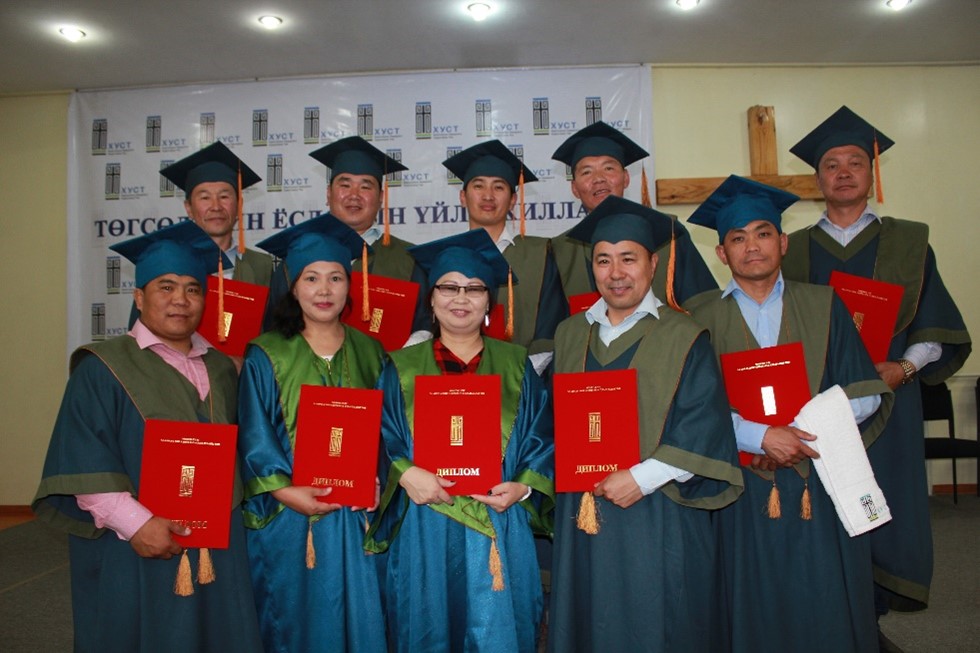| Posted March 29, 2022 | By Mark Wood | Categorized under Missiology and Praxis |

In 2008 my family and I moved to Darhan, the second largest city in Mongolia, to serve in theological education and leadership development. The emergence of the Mongolian church following seventy years of socialism is nothing short of astounding. Now, more than thirty years after the re-opening to the world following the revolution of early 1990, relatively little scholarship has focused on the Mongolian church.
After several years of teaching, I began to see that I did not know the leaders I interacted with and sought to serve as well as I wanted to. This realization was crystalized for me one day during a training I asked those gathered, a group of thirty or so men and women, to line up in order of when they became followers of Jesus. Looking around the room I noticed two things. The first was that the majority of those present were women. I also noticed that the first man, who identified as a follower of Jesus, was a bit over halfway down the line. What I did not know was why this was the case or what this story held. I was fascinated to hear each of their stories and to try to understand the various journeys that their lives had taken to this point.
I have been greatly impacted by the work of Paulo Freire and the process of empowerment that comes through enabling people to share their stories. This encounter motivated me to research the stories and experiences of church leaders like this in the training. As I refined my research question, I realized that I wanted to allow the voice of Mongolian church leaders to be heard and expressed, giving an insider, emic, perspective. Another reality was that I needed to limit my research population. I chose to focus on the experience of male, evangelical Mongolian church leaders, the central question of my dissertation. Much of the literature looking at the contemporary evangelical church in Mongolia provides either the perspective of an expat international worker or that of an outsider or etic perspective.
Gathering research was simultaneously one of my greatest joys and challenges. I really enjoyed the opportunity to sit down with these Mongolian church leaders and listen to what they had to say. Their stories have inspired, haunted, and often reduced me to tears. It was an experience that I did not want to stop. Their words are the basis for my upcoming book as part of the ASM Monograph Series, Shepherds of the Steppes: The Experience of Male, Evangelical, Mongolian Church Leaders, an Ethnographic Approach (Anticipated publication in 2023) by Wipf & Stock.

Photo: Church leaders, newly graduated
My research focuses on four general areas of experience: conversion, discipleship, Mongolian culture, and theological education and leadership development. Under conversion I explore mechanisms of conversion or how leaders came to be a follower of Jesus as well as factors or orientations that led to their conversion. I also interact with different theories and models of conversion as well as experiences that confirmed their conversion, responses by family and their social groups, and experience with baptism.
The chapter on discipleship examines three different approaches to discipleship that male evangelical Mongolian church leaders experienced as well as what their preferred experiences are. The leader’s experiences are also evaluated through the lens of models of discipleship and discipleship in the broader Asian context.
When male evangelical Mongolian church leaders become followers of Jesus, how do they decide in what ways they interact with Mongolian culture and its customs? The chapter on Mongolian culture describes, in their own words, how the church leaders approach traditions common to the Mongolian context. Of particular interest will be the section in which the leaders describe the translation of the term for God in the Mongolian language and their personal use of the term. Further aspects explore the models of Alan Tippett, Charles Kraft, and Paul Hiebert on the concept of cultural negotiation.
The last section addresses theological education and leadership development (TELD). Participants share their experiences about the value as well as concerns with TELD. Based on the descriptions of the participants, I share what a valuable program for TELD looks like in the Mongolian context.
The process of this research has changed me. It has given me a deeper insight and appreciation for the church leaders around me and a better understanding of their perspective. My desire is that though this book it is their voice that will be clearly heard.
* First photo: Darhan, Mongolia
By Mark Wood
Mark Wood serves as director of Kingdom Leadership Training Center in Darhan, Mongolia, a ministry of the Christian and Missionary Alliance. He is married to Cinda and they have two children. He can be reached at [email protected].